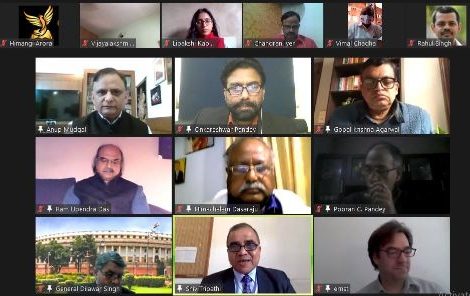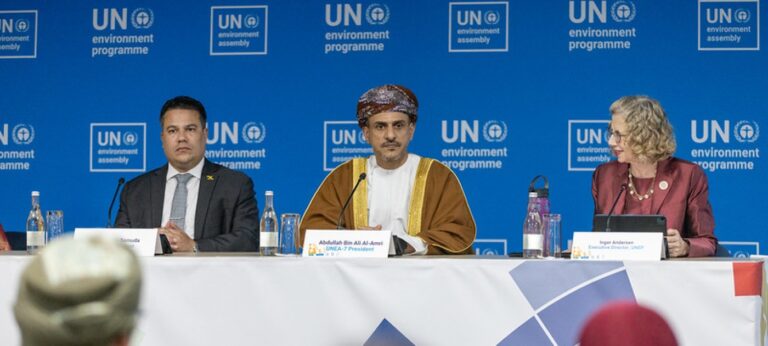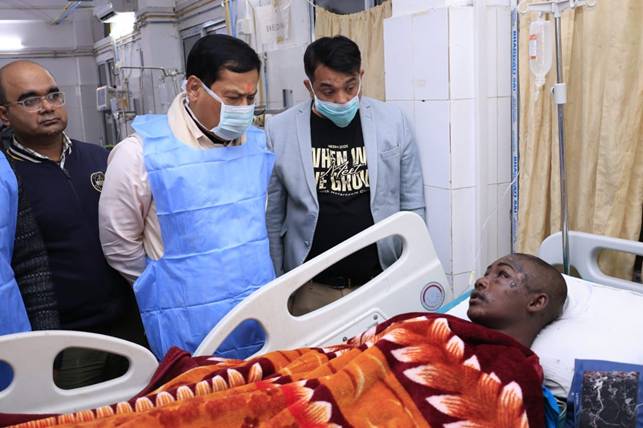
New Delhi: Integration of rural value-chains with the global value-chains is the way forward to foster economic development in India. While the need to check migration from rural to urban areas, Dr. Ram Upendra Das, Professor and Head, Centre for Regional Trade, suggested an action agenda, in course of his keynote address at a ‘21 for 21’ national webinar – focusing on presenting 21 ideas by 21 young economic thought leaders from 21 universities of the country, for shaping next development vision. These action agenda included:
- Creating necessary urban facilities in rural areas like hospitals schools vocational and higher educational institutions shopping complexes and entertainment multiplexes while preserving the farm land and non-farm activities;
- Private Sector must come forth to catapult the existing DBT financial inclusion network and rural infrastructure upgradation schemes of Central government to deliver a minimum level of urban content to rural area; and
- Digital networks must be oriented to developing Smart Villages that facilitate Village-level supply chains getting connected with Global Value Chains; helping to achieve the vision of ‘One District One Product/ Service’ of Prime Minister Narendra Modi while providing impetus to rural employment generation as well!
Dr. Ernst von Kimakowitz, Founder Humanistic Management Network, Switzerland further stressed at the webinar that for reforms aiming at rural development it was required to ensure clarity on the means and ends of development efforts. “Too often do we find economic growth positioned as the end, the ultimate goal of development efforts whereas it is a means. The end of development efforts is to create sustainable livelihoods allowing people to live a life in dignity and self-determination. Hence we must always ask how we can make productive use of economic growth, what needs to be in place so that economic growth can make a positive impact on the many people and what will that impact be,” he said.
 Moderating the session, Rahul Singh, Professor and Chair – Strategy and Globalisation, connected the dots on how Indigenous models of economic development and socio-cultural development can bring in sustainable approach. According to him developing a model on lines of Germany and South Korea was a better model for India, which could create SMEs helping manufacturing and entrepreneurial ecosystems of the country, and engage larger populations without concentration in few cities of economic activities.
Moderating the session, Rahul Singh, Professor and Chair – Strategy and Globalisation, connected the dots on how Indigenous models of economic development and socio-cultural development can bring in sustainable approach. According to him developing a model on lines of Germany and South Korea was a better model for India, which could create SMEs helping manufacturing and entrepreneurial ecosystems of the country, and engage larger populations without concentration in few cities of economic activities.
Professor Himachalam Dasraju, Professor Emeritus (UGC) and Commonwealth Visiting Fellow emphasised the need for focusing special attention on the Economic, Social, and Environmental values of an investment for attaining sustainable development through infrastructure development in rural areas. In this context, he underlined the dire need to focus attention on the following three key areas –
- Promoting Youth Entrepreneurship in rural and semi-rural areas
- Nurturing Entrepreneurship in MSMEs for achieving UN Sustainable Development Goals, and
- Promoting Technology-based Startups in rural development in the Post-Covid19 “New Normal”.
“The latest disruptive technology should be used widely in agriculture and allied sector development, he emphasised.
Arpita Mukherjee, Professor at Indian Council for Research on International Economic Relations(ICIER), New Delhi, was of the view that for the rural economy to grow there should be focus on value addition and improvement on services such as logistics/e-commerce and retail services, it was important to develop, brand and market product-specific clusters, which can meet global food safety and hygiene standards. “Along with this, we should diversify exports to high value-added crops like horticulture and organic, to improve farmers income,” she said, adding that entrepreneurship and alternative livelihood development at the village/block levels will provide higher income to the rural population. According to her, technology for product traceability to the field and a B2B platform to connect farmers to markets will help to increase income. “Vulnerable groups like women, SMEs and small and marginal farmers have to focus on digital financial inclusion and training initiatives. There is need for efficient waste management law and processes to reduce food loss from farms to consumers,” she said.
Gopal Krishna Agrawal, National Spokesperson (Economic Affairs) of Bharatiya Janata Party (BJP), set the tone of the webinar and stated in his inaugural address that while entrepreneurship development was the key to realize Atma-Nirbhar Bharat under a challenging scenario, “we all must prepare to work collectively for developing entrepreneurial India”.
He mentioned that RBI’s report a day before points towards” robust” growth around. “GST collection figures, PMI data show fast track rebound in economic activities,” he pointed out and asserted that the Government was committed to reforms in agriculture, labour and manufacturing policies.
Speaking about Atma Nirbhar Bharat he said that it is not about a closed economy but integrating domestic manufacturing to global value chains, making them competitive. Stressing on the need for localized technical education, he said that the next decade was going to witness remarkable changes in India’s economy as well as the other sectors that support the economy. He mentioned that after the first few decades of economic reforms, now it was time for the country to take the next phase of reforms in manufacturing, labour and agriculture.
The other speakers at the webinar included Ambassador Anup K Mudgal, who was of the view that India needs next level of reforms in terms of promoting entrepreneurship development that addresses sustainability issues at focus; Pooran Chandra Pandey, former CEO of Dialogue of Civilizations, Berlin, who stressed that policies should be directed at enhancing non farm income of farmers and rural households to be able to maintain a broad equilibrium between income, saving and investment where interest rates.
Summary of 21 Ideas sent by young Economic Experts from 21 Universities was presented by Dr. Pritish Kumar Sahu, Faculty Member, Birla Global University, Bhubaneshwar. “This will be submitted to the Government shortly,” Onkareshwar Pandey, Editor in Chief of Indian Observer Post and organiser of this event, said.
– global bihari bureau






Government should not have given permission for tractor rally on the day of Republic day.It gives a bad precedence.
Vandematharam